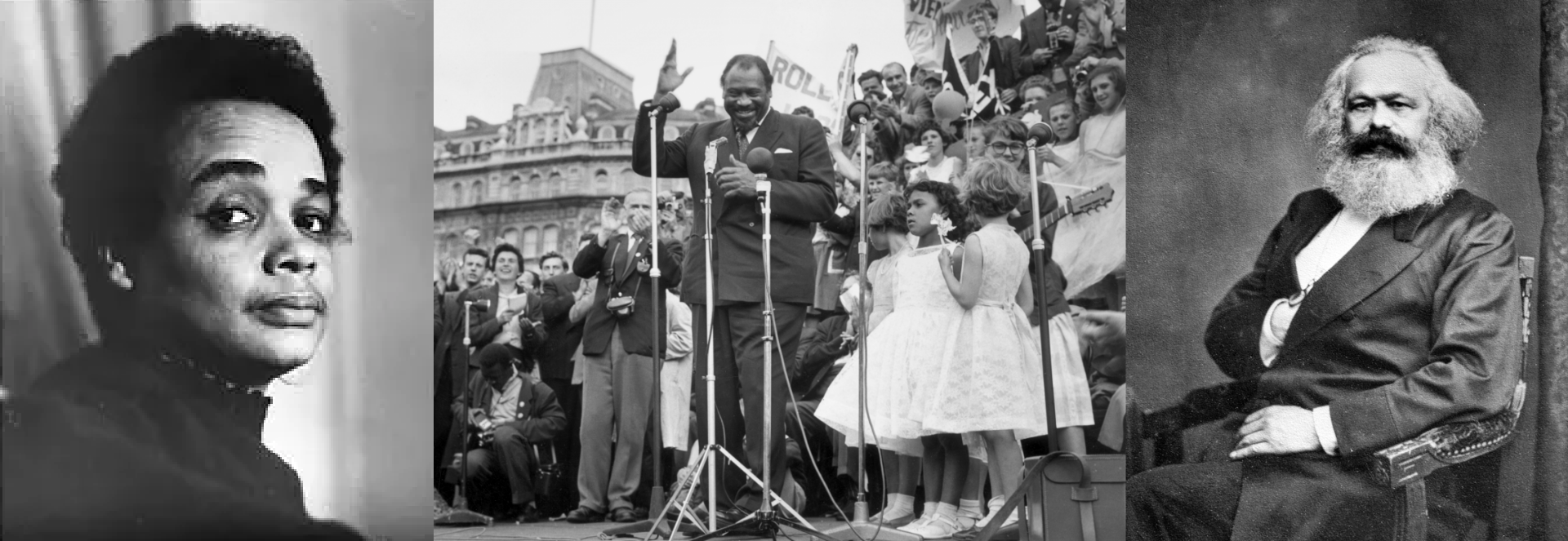As the tide of racial hatred rises throughout the country, as the incidents of racial violence escalate, as the gulf between the different communities grows ever greater, as elements in the media and various politicians whip up racial antagonism, into the breach steps people of good will, trying to reduce tensions, to build bridges, and to work for brotherhood.
How could anyone find fault with these blessed peacemakers? And yet some do, and cite the old saying that “The road to hell is paved with good intentions.”
Through the magic of dramatic license, let us transport ourselves back almost 150 years in our history to Baltimore of the 1850s. The city is tense after a series of brutal attacks on free Blacks by white workers attempting to drive them from the city. A town meeting has been called by our peacemakers. It is crowded with both Black and white workers. Also present are some owners of plantations on the city outskirts, accompanied by a number of their slaves.
THE PEACEMAKER: Well, what seems to be the problem, folks? We hear there’s been quite a bit of tension here.
FREE BLACK: We’re trying to earn a living by the sweat of our brow but they’re trying to drive us out of the trades.
WHITE WORKER: They’re taking our jobs away.
FREE BLACK: Why are they your jobs?
WHITE WORKER: Because it’s a white man’s country.
THE PEACEMAKER: We also hear there’s been unrest on the plantations.
SLAVE MASTER: These free niggers are troublemakers, stirring up our niggers. And they’re setting a bad example, too, with their insolent ways.
THE PEACEMAKER: Well, do you slaves have any complaints?
(Silence)
THE PEACEMAKER: Okay, as we see it, there is a
lack of communication here between Black and white. Furthermore,
there are demagogues from the white community trying to
stir up hate. And there are demagogues from the Black
community preaching freedom. Now the fact is, we all have to live together, and–
WHITE WORKER: Why? Why don’t they go back to Africa?
THE PEACEMAKER: (Turning to free Blacks) Alright, would you be willing to —
FREE BLACK: We’re staying right here!
THE PEACEMAKER: (Sighing) So as you see, we’re going to have to learn to live together, to respect each other’s differences, to respect each other’s point of view. And now that we have heard from everybody, as a beginning step, and admittedly it is a small beginning, why don’t we designate next Saturday as Unity Day. And on that day everybody, Black and white, slave and free, shall pick up brooms and sweep down the streets of Baltimore together.
SLAVE MASTER: Well, I need my niggers in the field. But I can let you have them that day about 4 o’clock.
THE PEACEMAKER: Splendid! This is going to be a really exciting event. We’re going to turn this city around!
(Fade out)
Historical note: The “problem of inter-group relations” was solved when hundreds of thousands of Blacks, slave and free, joined the forces of the Union Army, turned the tide of battle, and defeated the slavocracy. The treacherous betrayal of their valor gave rise to another “problem of inter-group relations.” But of that, another time.
Of course, our little play was imaginary. But are parallels with today’s “peacemakers” far-fetched?
Working people here of every ethnic and national group are victimized by this system, a system built on and maintained through racism, exploitation, and a so-far successful policy of divide and rule. There is no question that unity is vital. The real question has to do with the terms of that unity, and it is precisely this on which many of the “peacemakers” are silent.
For there can be no unity of the exploiter with the exploited, of the victimizer with the victim, of the paternalistic with the object of his paternalism, of the affluent with those losing the battle for survival, of those possessing every advantage with those robbed of any opportunity.
The only unity possible, the only good will, the only brotherhood, must rest on prioritization of the struggle against the accelerating genocide against the African-American people, must rest on uncompromising struggle against white racism, must rest on a common struggle for genuine empowerment of the African-American people, on which depends not alone their own future well-being, but the well-being of all working people.
The peacemakers fear confrontation. They fear contradictions coming to a head. They equate the righteous anger of those at the bottom of society with the ire of those unwilling to give up their privileges. But righteous anger, the coiled tension which is indispensable for action, and courageous confrontation, these are the vital ingredients of change.
Peacemakers, step aside!





